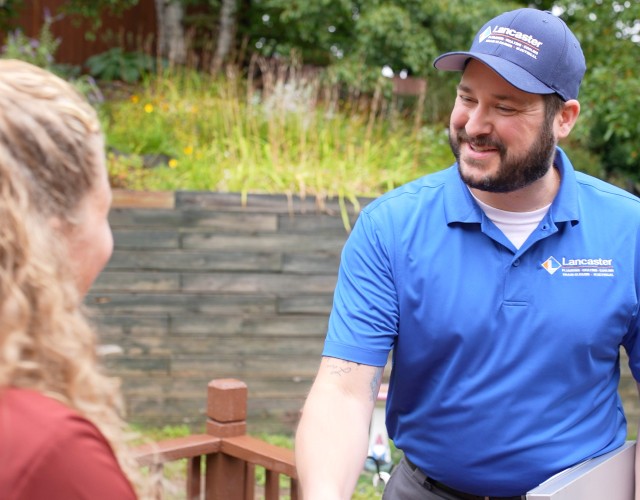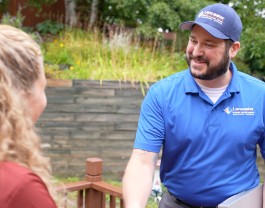Why Is My Water Pressure Low in My Home?

If your morning shower feels more like a drizzle than a rinse, or it takes forever to fill the kitchen sink, low water pressure may be the culprit. Across Lancaster County, it’s one of the most common plumbing complaints and one of the most misunderstood. From century-old farmhouse plumbing to newer developments on shared wells, there’s no single cause. Sometimes it’s a quick fix. Other times, it’s a warning that something deeper is happening inside your pipes.
What Water Pressure Really Means
Your home’s water pressure is the force that moves water through pipes and fixtures, measured in pounds per square inch (PSI). Most homes should stay between 40 and 60 PSI for reliable flow. Anything below that can make showers weak, affect water heaters, and cause irrigation systems to be uneven.
In many Lancaster homes, especially those with older galvanized or copper pipes, even a small internal restriction can cut that number in half. Because water pressure is influenced by everything from your home’s plumbing layout to the local supply lines, the first step is pinpointing where the problem starts.
Common Causes of Low Water Pressure in Lancaster County Homes
Aging or Corroded Pipes
Lancaster’s older homes, especially in areas like Manheim Township, Lititz, and Mountville, often have original galvanized pipes that have narrowed over decades of mineral buildup. Corrosion slowly closes off the pipe’s interior, leaving less room for water to pass through. The result: decent pressure on the street but weak flow at the tap. If you hear hissing in the walls, spot rusty water, or notice a pressure drop in multiple fixtures, corrosion could be to blame.
Hidden Leaks in the System
A hairline leak in your main supply line can waste gallons of water a day and dramatically reduce pressure before it ever reaches your faucets. In Lancaster’s older basements, many homeowners mistake damp concrete or slight puddling near the foundation for humidity, when it’s really a slow underground leak. Professional leak detection can confirm the source before it leads to major water damage or higher utility bills.
Hard Water and Mineral Buildup
Lancaster County is known for its hard water, which contains minerals such as calcium and magnesium that can settle inside pipes, showerheads, and faucets. This buildup narrows the diameter of your plumbing, restricting water flow over time. Sediment from your water heater can also contribute to clogs in valves and fixtures. If you’ve noticed your pressure gradually dropping rather than suddenly changing, mineral buildup could be the culprit.
Partially Closed Valves or Failing Pressure Regulators
After a plumbing repair or water main shutoff, it’s not uncommon for the main valve or a branch valve to be left partially closed. Even a quarter turn off can make a noticeable difference in flow. Homes with a pressure-reducing valve (PRV) may also experience sudden drops when that regulator starts to fail. A licensed plumber can test and recalibrate it, or replace it if the diaphragm has worn out.
Issues with Wells or Municipal Supply
Many Lancaster County homes still run on private wells, and a weak well pump, clogged filter, or aging pressure tank can mimic the same symptoms as a plumbing blockage. For homes on city water, maintenance or breaks in the municipal line can cause temporary pressure drops. Checking with neighbors is an easy way to tell whether it’s an isolated home issue or a larger system problem.
When to Call a Local Plumber
If you’ve cleaned your fixtures, checked your valves, and the pressure still isn’t right, it’s time for a professional inspection.
Lancaster Plumbing, Heating, Cooling & Electrical has helped homeowners across the county, from Ephrata to Elizabethtown, solve these exact problems since 1904. Our licensed plumbers know the quirks of Lancaster’s aging infrastructure, local water conditions, and even the telltale signs of well pump or municipal issues. We use advanced diagnostic tools to find the cause and restore steady, consistent water pressure that lasts.
Don’t let weak water flow slow down your household. Contact Lancaster Plumbing, Heating, Cooling & Electrical today to schedule a plumbing inspection and get your water pressure back to normal.



